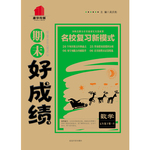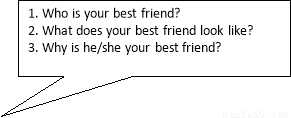
your coat. It's cold outside.
A. Look at B. Take off C. Put on D. Hang up
 期末好成绩系列答案
期末好成绩系列答案 99加1领先期末特训卷系列答案
99加1领先期末特训卷系列答案 百强名校期末冲刺100分系列答案
百强名校期末冲刺100分系列答案科目:初中英语 来源:2013-2014学年四川省乐山市峨边彝族自治县九年级4月教学质量检测英语试卷(解析版) 题型:书面表达
请根据以下提示内容,用英语写一篇80-100个词的短文。
新华中学实施了改善学生健康的“蛋奶工程”。Wet Hua是该学校的一名学生。这天,Wei Hua 又得到了刚发下来的鸡蛋和牛奶。他打开那盒牛奶喝了一点点,就不想喝了。连续吃了一段时间的牛奶和鸡蛋,Wei Hua感到吃腻了,就偷偷地把鸡蛋和大半盒的牛奶扔进了垃圾桶里。远处的王老师看到了他的举动,并对他进行了教育。他对此感到抱歉,决定今后要节约粮食,不再浪费粮食。
参考词汇:rubbish bin垃圾桶, be tired of 对……感到厌(腻)了,
throw扔, save节约
要求:1.包括所有内容要点,用上所给参考词,可适当发挥。
2.语句通顺、语法正确,80-100个词。开头句已给出,不计入总词数。
3.文中不得出现考生真实的姓名、地点和所在的学校名称。
To improve stu dents’ health, Xin Hua Middle School has carried on the Milk and Eggs Project for students.
dents’ health, Xin Hua Middle School has carried on the Milk and Eggs Project for students.
查看答案和解析>>
科目:初中英语 来源:2013-2014学年四川省万州区岩口复兴学校九年级中考模拟(一)英语试卷(解析版) 题型:单项填空
--I passed the driving test last weekend.
--________!
A. Congratulations B. What a pity
C. Good luck D.I hope so
查看答案和解析>>
科目:初中英语 来源:2013-2014学年北京市西城区九年级毕业会考英语试卷(解析版) 题型:书面表达
根据中文和英文提示,写一封意思连贯、符合逻辑、不少于50词的回信。信的开头和结尾已给出,其词数不计入所要完成的回信内。所给的英文提示词语仅供选用。请不要写出你的校名和姓名。
假如你是Mike,远在美国的妈妈想了解你在中国最好的朋友的情况。请你给妈妈写封邮件,介绍你在中国最好的朋友。请你根据妈妈的问题回复邮件。
提示词语:interest, know each other, help, kind, friendly


Dear Mum,
How are you? Everything is fine in China. You want to get to know my best friend and I will tell you about him / her.
Best wishes
Mike
查看答案和解析>>
科目:初中英语 来源:2013-2014学年北京市西城区九年级毕业会考英语试卷(解析版) 题型:单项填空
— Where's the bus stop?
— It's over there.
A. Thank you B. Excuse me C. All right D. Sorry
查看答案和解析>>
科目:初中英语 来源:2013-2014学年北京市西城区九年级毕业会考英语试卷(解析版) 题型:单项填空
Get up early, you'll miss the bus.
A. so B. and C. but D. or
查看答案和解析>>
科目:初中英语 来源:2013-2014学年北京市西城区九年级毕业会考英语试卷(解析版) 题型:单项填空
March is month of the year.
A. third B. three C. the three D. the third
查看答案和解析>>
科目:初中英语 来源:2013-2014学年北京四中九年级10月月考英语试卷(解析版) 题型:单项填空
You ____________ to the ball. Why didn't you go?
A. invitedB. are invited
C. will invitedD. were invited
查看答案和解析>>
科目:初中英语 来源:2013-2014学年内蒙古中考模拟英语试卷(解析版) 题型:阅读理解
Living in a foreign culture can be exciting, but it can also be confusing(令人迷惑的). Some Americans who taught English in other countries recently talked about their experiences.
On her first day in Micronesia(密克罗尼西亚), an island in the Pacific, Lisa thought people weren’t paying any attention to her. It was hot. She went into a store and asked, “Do you have cold drinks? ” The woman there said nothing. Lisa repeated the question. Still the woman said nothing. She later learned that the woman had answered her: She had raised her eyebrows(眉毛), which in Micronesia means “yes”.
Jane remembered an experience she had in Bulgaria(保加利亚), a country in Europe. She went to a restaurant. She asked the waiter, “Do you have cabbage today?” He nodded his head. Jane waited, but the cabbage never came. In that country, a nod means “no”.
Tom had a similar problem when he arrived in India. After explaining something in class, he asked his students if they understood. Some nod and others shake. He thought some students had not understood, so he explained again. When he asked again, they did the same thing. He soon knew that his students did understand. In India, people nod and shake their heads in different ways depending on where they come from. You have to know where a person is from to understand whether they mean “yes” or “no”.
1.These Americans in the passage found that they__________ .
A. should go abroad for vacations
B. needed to learn foreign languages
C. should often discuss their experiences
D. had problems with communication in other countries
2.People in Micronesia show “yes” by ________ .
A. nodding heads B. raising eyebrows C. shaking heads D. saying “no”
3.Tom misunderstood(误解)his class at first because_______ .
A. he didn’t know much about Indian culture
B. he didn’t explain everything clearly enough
C. some students didn’t speak English
D. he didn’t know where the students came from
4.Which of the following is TRUE?
A. In Bulgaria, nodding heads means “no”.
B. Jane taught English on a Pacific island.
C. Lisa was trying to buy some cabbage.
D. In India, only shaking heads means “yes”.
5.The passage is mainly about_________ .
A. body language in foreign restaurants
B. class discussion in Indian schools
C. different language cultures in different countries
D. English teaching in other countries
查看答案和解析>>
湖北省互联网违法和不良信息举报平台 | 网上有害信息举报专区 | 电信诈骗举报专区 | 涉历史虚无主义有害信息举报专区 | 涉企侵权举报专区
违法和不良信息举报电话:027-86699610 举报邮箱:58377363@163.com